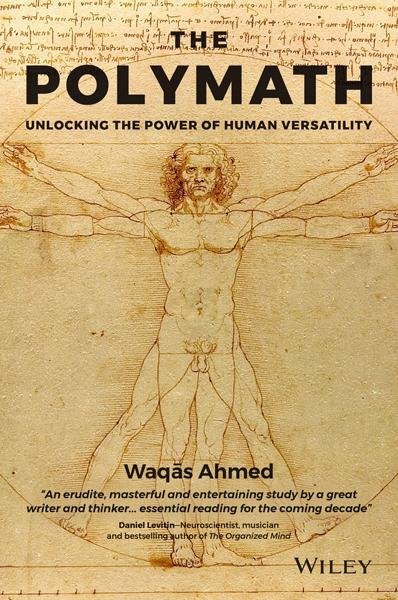
AI and the future of work is a major topic of discussion
Most views on this subject are negative
More broadly, the negative impact of technology has been highlighted by Nicholas Carr (the shallows) , Susan greenfield – Mind change and others
While the problems are highlighted, a solution is missing i.e. What can we do to change our approach in a world of work dominated by AI?
Over the last few weeks, I read an interesting book called The Polymath: Unlocking the Power of Human Versatility by Waqas Ahmed
A polymath is an individual whose knowledge spans a significant number of subjects, known to draw on complex bodies of knowledge to solve specific problems. (wikiepdia). The best example of a polymath is Leonardo Da Vinci. Specifically, a polymath could be seen as someone who has demonstrated mastery in more than two trades (poly – hence more than two)
Apart from an understanding of polymaths, I read this book from the perspective of AI and the future of work
Here are some ideas / questions that the book raises in my mind ..
- Henry ford created the division of labour model. That model has stood the test of time for almost a century. Now, things are changing in industry. This has both good and bad implications. The stable nature of work will change with AI. But that means, the boring / routine jobs will also be lost.
- As we lose the division of labour model, the education system also will need to change to reflect the new reality where AI (machines) will do the boring jobs
- Specialisation is the antithesis of the polymathy model because the polymath does not specialize in one thing – rather the polymath has acquired the ability to see connections between things and master new skills rapidly.
- Hence, in the near future, where AI dominates AI and the future of work, specialization will decrease – and by extension polymathy could become more significant as a skill
- So, Will Artificial Intelligence make us all into Polymaths in the future?i.e. is polymathy the missing skill we need in the future
- We would have to learn in a different way: see connections, use lateral thinking, use systems thinking and of course, move away from rote learning
- Conrad Wolfram also echoed this idea in the new way to teach maths
- Polymathy could mean that the ability to change careers could be a skill in itself (the serial career changer). Also, the ability to work on more than one careers in parallel (portfolio worker as outlined by Charles Handy)
In any case, learning polymathy as a skill could lead to greater mental flexibility providing an antidote to the forthcoming changes in the world of work.
Hence, Artificial Intelligence make us into Polymaths in the future.
The operative word is ‘mastery’ i.e. the ability to demonstrate mastery in more than one skills.
If more people take this approach, it could be a game changer indeed for society.
Ultimately, we could see a new partnership between humans and machines.
Image source The Polymath: Unlocking the Power of Human Versatility by Waqas Ahmed
